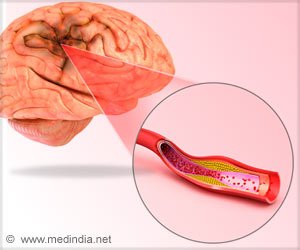Diabetes, Heart Disease, and Stroke Share Genes With Dementia Too

Cardiometabolic diseases such as type 2 diabetes, heart disease, and stroke are challenges to society because of a growing aging population and improved healthcare.
People living longer with cardiometabolic diseases are more likely to get two or more of these conditions in a lifetime, known as cardiometabolic multimorbidity. It affects an estimated 30 percent of older adults and leads to increased mortality.
Advertisement
It is a known fact that type 2 diabetes, heart disease, and stroke are well-established individual risk factors for dementia. But few studies have only dealt with the effect of this multimorbidity on dementia risk and whether genetic factors affect the relationship.
Dementia Risk Raises with the Presence of Diabetes and Heart Disease: Know Why
To explore that, researchers examined twins over the age of 60 who were registered in the Swedish Twin Registry between March 1998 and December 2002. In that study, more than 17,000 individuals were categorized based on whether they had one or more cardiometabolic diseases or whether they were free of these conditions.
All study participants were cognitively healthy at the beginning of the study. The participant’s health status was monitored for up to 18 years, allowing the researchers to establish who eventually developed dementia and who did not.
They discovered that cardiometabolic multimorbidity is linked to a more than doubled risk of vascular dementia and a 50 percent increased risk of Alzheimer’s disease.
For each cardiometabolic disease, the person had, the risk of all types of dementia increased by 42 percent. The corresponding figure for Alzheimer’s disease is 26 percent and 64 percent for vascular dementia.
They also found that the risk of developing dementia was higher if a person was diagnosed with cardiometabolic diseases in middle age compared to if those diseases developed later in life.
Then researchers took a closer look at about 400 specific pairs of twins from the study population that was ‘mismatched’ – that is, the two twins in a pair differed from each other in terms of both the prevalence of cardiometabolic disease and the possible development of dementia.
Among the mismatched dizygotic twins who share 50 percent of their genes, the twin with the cardiometabolic disease was more likely to also be the one who developed dementia.
However, among mismatched pairs of identical twins who are genetic copies of each other, the risk of dementia was similar for both twins regardless of cardiometabolic disease status. The results suggest that the same genetic factors may contribute to both cardiometabolic diseases and dementia.
Source: Eurekalert
Source link
#Diabetes #Heart #Disease #Stroke #Share #Genes #Dementia



